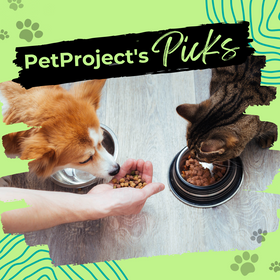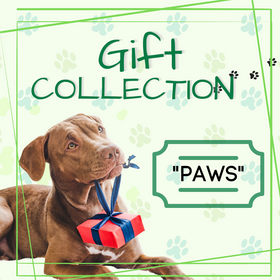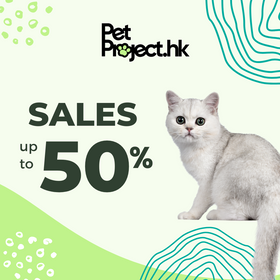
Top 10 Foods Your Pet Should Avoid
As pet owners ourselves, we know just how convincing those puppy (or kitty!) eyes are when our pet is begging for table scraps. All resolve goes out the window when they pat you with their little paws as if to say “just a little bit?” Sharing food with your pet may seem relatively harmless, but on top of encouraging bad habits and unhealthy weight gain, it may lead to more serious problems if the wrong food is ingested. There are plenty of human food that are not suitable for pets and can negatively impact their health, or worse, be fatal to them. Keep reading to make sure you’re aware of the foods your pet should avoid!

Most people are surprised to hear this, because the image of a cat lapping at a saucer of milk is often depicted in cartoons and other forms of media. In reality, neither dogs or cats are equipped with the system to break down lactose. Introducing cow’s milk into their diets can cause a series of problems from digestive issues such as upset stomach and diarrhea to even food allergies. One lick of ice cream as a treat probably won’t hurt, but keep the saucers of milk away!
Want to treat your pup? Try out Isle of Dog’s Breath Biscuit (With Sweet Milk & Toffee Flavour) We promise they won’t be able to tell the difference!
 Raw Unprocessed Meats
Raw Unprocessed Meats
“Raw ingredients,” “raw foods,” “all-natural and raw” - you’ve probably heard these terms thrown around in terms of high-quality pet food. Do not be mistaken, these terms are used to describe raw ingredients that have gone through a special process, usually freeze-dried or air-dried, which removes all bacteria while keeping the desired nutrients. Pets should never be fed raw unprocessed meat as it can contain bacteria such as E.coli, which is harmful to your pet’s health and can cause digestive issues.
If you’re looking to include “raw” food in your pet’s diet, try out Northwest Naturals’ Freeze Dried Treats for Dogs & Cats, available in 9 delicious flavours!
 Bones
Bones
It might seem like common sense to recycle and reuse the leftover bones from your meal as a fun treat for your pets, but bones (especially cooked bones) can easily splinter and become choking hazards, as well as cause intestinal blockage or tears in your pet’s digestive tract which could result in fatal injuries.
However, chewing on bones does offer dental benefits to your pets by scraping off plaque and stimulating the gums, which help control bad breath. Make sure to buy pet-safe bones such as The Rawhide Express’ Knotted Bones, available in multiple flavours and shapes.
 Garlic & Onions
Garlic & Onions
Common seasonings, such as garlic and onions, are extremely prevalent in our food (especially in Chinese food) and can cause numerous health issues for your pet when consumed in large quantities, including serious red blood cell damage, asthma attacks, liver damage, and digestive issues. While it seems to affect cats more than dogs, garlic and onions (among other seasonings) should be kept away from both in general. Remember, even if you can’t physically see it, the food could’ve been sautéed with these seasonings!
“Wait - there’s garlic in my dog’s food!” Not to worry, the (very) small amount of garlic in your dog’s food, such as Kakato’s Dry Dog Food, is actually proven to have beneficial properties for your dog. The enzyme, Allicin, is created when garlic is crushed, minced, or chopped and contains antibiotic, anti-cancer, antiviral and antioxidant properties.

Alcohol
While this may seem obvious, we felt that it was important to stress the severity of the problems alcohol could cause if ingested by our pets. Side effects include vomiting, diarrhea, depression of the central nervous system, coordination problems, breathing issues and tremors. In extreme cases, the pet could fall into a fatal coma. The severity of the side effects depend on the amount of alcohol consumed, but regardless, pet owners should take extra care to keep alcohol away their pets.
 Caffeine
Caffeine
While some of us are addicted to our caffeine and can’t imagine a day without it, our pets should definitely do without! Caffeine contains methylxanthines chemicals, which can also be found in tea, colas and energy drinks, and ingestion of said chemicals can induce vomiting, diarrhea, and hyperactivity. More serious symptoms include tremors, abnormal heart rhythms and even death.
Pet needs a little perking up? Open a bag of Stella & Chewy’s Carnivore Crunch and watch their little noses do just that!
 Chocolate
Chocolate
Like caffeine, chocolate also contains methylxanthine and should be avoided by pets by that alone. However, chocolate also contains theobromine, another toxic element to pets and can trigger vomiting and muscle spasms, and in more serious cases, death. Chocolate is one of the most commonly known foods for pets to avoid due to how little it takes for it to be lethal. Anything over 100 grams can be a lethal dose to smaller dogs. While different types of chocolate contain different levels of toxicity, it’s best to keep all types of chocolate away from your pets.
Want to give your pet a treat as delicious as chocolate? Try Greenies or Feline Greenies for a safe and yummy treat that protects your pet’s dental health!
 Grapes & Raisins
Grapes & Raisins
While grapes and raisins provide us with nutritional benefits, they do the exact opposite for our pets! If ingested by our pets, grapes and raisins have been known to cause hyperactivity, repeated vomiting, lethargy, depression, kidney failure, and even death. While most fruits are safe for pets in slice form, avoid fruits with pits, such as peaches, as they can become choking hazards and contain cyanide, which is fatal to our pets.
Don’t be scared to include fruits in your pet’s diet though! Check out Kakato’s Freeze-Dried Dog & Cat Fruit Treats as a safe and convenient way to add fruit to your pet’s diet.
 Yeast Dough
Yeast Dough
If you like to bake, be careful of where you leave the dough! When ingested, yeast dough can expand in your pet’s stomach, causing increased gas production which could lead to rupturing of the stomach or intestines in extreme cases. Other symptoms include vomiting, abdominal discomfort and bloat.
 Macadamia Nuts
Macadamia Nuts
While some nuts are okay, macadamia nut should never be fed to your pets. Raw or roasted, these nuts can prove fatal for your pet and it only takes as little as six of them. Reaction includes vomiting, tremors, weakness, and depression. Symptoms usually start within half a day after ingesting it and can last from 12 to 48 hours. Reactions can worsen to include paralysis and hyperthermia so remember to be extra diligent when closing the lid on your nut’s jar!
Looking for grain-free and easy to feed snacks? Check out Wellness’ Grain Free Well Bars available 7 different flavours!
---
Interested in trying a range of foods for your pet before settling on the one they love? Check out PetProject.HK’s $1HKD Sample Pack for Dog or PetProject.HK’s $HK1 Sample Pack for Cats!
Already know what your pet loves? Check to see if we offer bulk buy discounts on your pet’s favourite products and save big. Never run out of your pet’s favourite food and your pet won’t be as easily tempted to go scavenging for food that might harm them!





